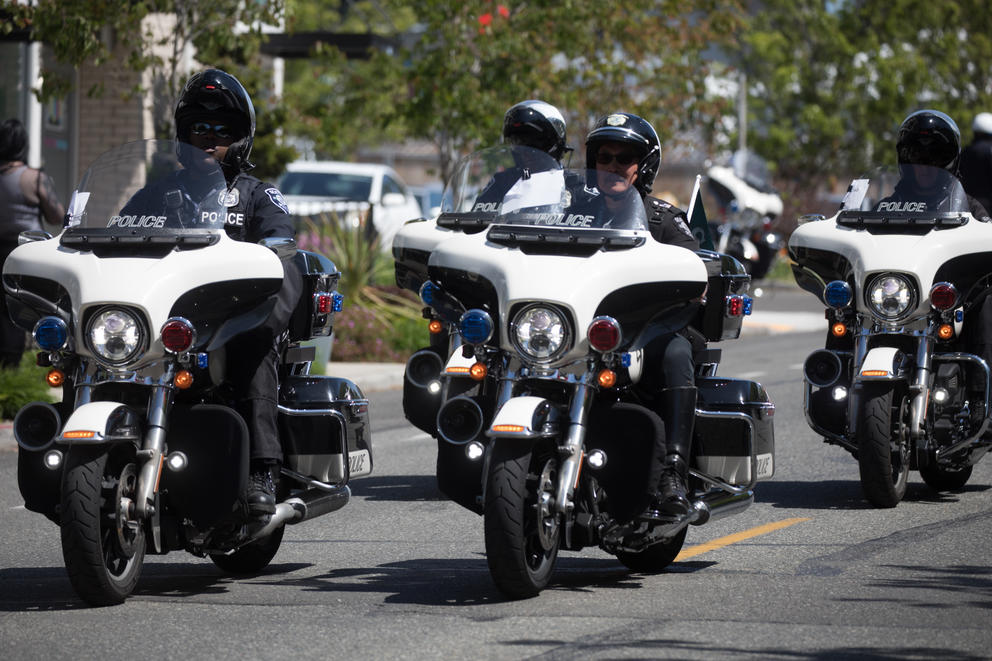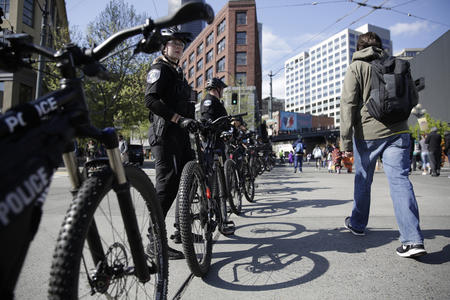The Community Police Commission — an advisory group mostly made up of volunteer commissioners — indicated its concerns weeks in advance. Nevertheless, the group’s statements Monday are further evidence of the major outstanding disagreement between the commission and the city’s legal and executive leadership for how best to address statements from a federal judge in May concerning how the city should hold officers accountable.
“After more than five years of discussions, public hearings, community input, and court filings, there is still no indication in this proposed approach that the City is committed unequivocally to embracing the long-promised accountability reforms,” the commission wrote in a court filing Monday.
The stakes over how the disagreement is resolved are high: The judge, James Robart, has made clear he will not end a long-running federal oversight agreement — or consent decree — until he’s satisfied the department can properly hold officers accountable. In his eyes, that includes better-defining and strengthening standards of proof, disciplinary statute of limitations, subpoena power and arbitrators’ role in discipline.
Until he’s satisfied, he said earlier this summer, the city would be partially out of compliance with that agreement — a major blow to city leaders who believed they were months away from concluding the 2012 deal with the Department of Justice.
The tension centers on two main documents: a 2017 police accountability law passed by the Seattle City Council and recently ratified contracts with the city’s two major police unions.
The 2017 law, built around recommendations from the Community Police Commission, was hailed by both city leaders and community groups as a major and positive step toward closing police accountability loopholes.
But last year, after the city signed a new contract with the rank-and-file Seattle Police Officers Guild, the CPC and other groups said the city had undermined aspects of the 2017 law.
Durkan and Holmes disagreed. But last May, Judge Robart largely sided with the CPC — a decision that was, in part, spurred on by an arbitrator’s reinstatement last fall of an officer who had been fired for punching a handcuffed woman. The city fought his reinstatement and argued it was a fluke. But the arbitrator’s decision incensed the judge and seemed to convince him that the contract negotiated by the city would allow for more, similar reinstatements.
Robart sent the parties back to do more work, but did not say, specifically, how his concerns should be addressed.
Last week, Durkan and Holmes proposed conducting a review of the systems that allowed the officer to be reinstated and also to use consultants to survey similar police departments’ accountability systems. The city said what deficiencies existed should and could be addressed in the next round of union negotiations, slated to begin next year.
In its filing Monday, the CPC rejected that proposal out of hand as a waste of time.
“In effect, by proposing that the City needs to see which reforms other cities have adopted in order to decide what the Seattle will do next, the City is telegraphing that the reforms to which elected officials committed as far back as 2014, and for which the City was supposed to bargain vigorously, are reforms the City still is not sure it intends to implement,” the commission said in its filing. “This equivocation and failure to follow through raises serious doubts about how committed the City will be to reform should the Consent Decree end.”
The city’s proposed path, the CPC argued, “is a recipe for many months (and possibly several years) of additional delays and distractions.”
Instead, the CPC is urging Robart to map a plan for getting back into compliance — including having the city return to the so-called “reopeners” left unresolved in the previous contract. On the issues that the city and the unions did negotiate, the CPC wants the city to work with the unions to address the judge’s concerns — arguing it’s in the best interest of both to achieve stronger accountability and a speedier resolution to the reform agreement.
Last Friday brought an added and coincidental wrinkle: A King County Superior Court judge overturned the arbitrator’s decision to reinstate the previously fired officer. It’s unclear whether this helps the city’s argument that his reinstatement was a fluke and not systemic.
Robart has yet to call a hearing to weigh in on the dueling filings from the city and the CPC. But — although this has been said many times before and after the 2012 agreement was signed — when he does, it’s likely to be among the most consequential of the years-long process to win back community confidence in the police department.






